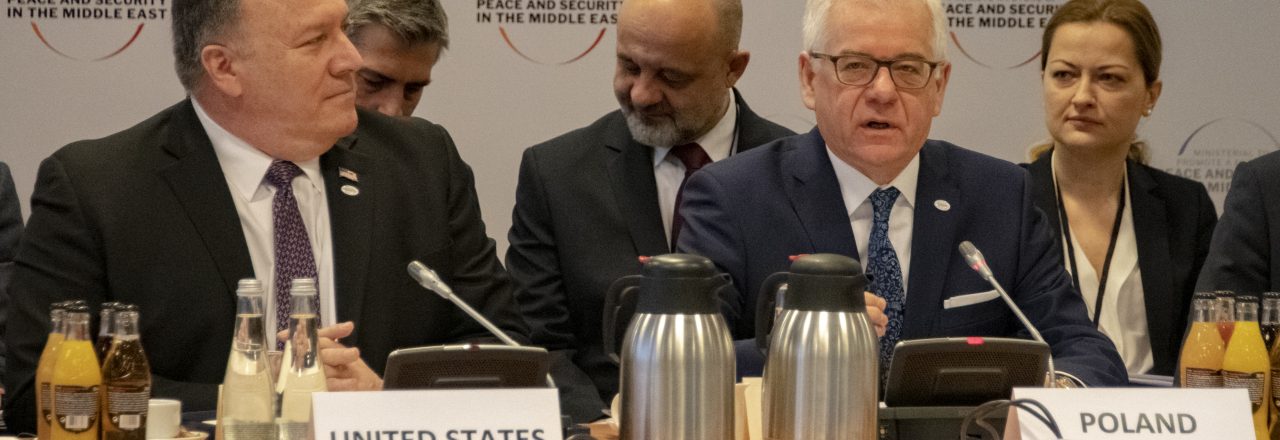
Warsaw Summit: U.S., Arab countries and the EU discuss security challenges in the Middle East
Co-hosted by the U.S. and Poland, the two-day Warsaw Summit gathered over 60 nations from 6 continents. On the agenda were included issues like humanitarian and refugee challenges, missile proliferation and 21st Century threats such as cyber and terrorism. Amid the attendees were the Secretary of State Mike Pompeo and Vice-President Mike Pence representing the U.S.; the UK sent foreign secretary Jeremy Hunt, France sent a civil servant and Germany its junior foreign minister. European institutions were not represented since EU diplomat Mogherini didn’t attend. Saudi Arabia, Yemen, Jordan, Kuwait, Bahrain, Morocco, Oman, UAE, Egypt, and Tunisia marked their attendance by sending delegations headed by ministers or deputy ministers. Iran, Qatar, Turkey, Russia, and Lebanon did not attend the summit. While Prime Minister Netanyahu represented Israel, Palestinians are not attending since they are boycotting the Trump administration. U.S. representatives condemned the EU for creating a special financing mechanism to keep up the Joint Comprehensive Plan of Action (JCPOA) and urged the EU to stand with the Iranian people. The summit ended with frictions between the Polish PM Morawiecki and Israeli PM Netanyahu over controversial remarks from the latter.
- The Euromed news are edited by the team of the Euro-Mediterranean Policies Department of the European Institute of the Mediterranean -


